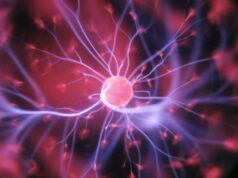
A new randomised controlled trial (RCT)—the “largest ever” of its kind in the major depressive disorder (MDD) space—will attempt to provide a “thorough understanding” of how treatment-resistant patients respond to vagus nerve stimulation (VNS) therapy.
Details of the RECOVER trial were presented earlier this year at the 5th International Brain Stimulation Conference (19–22 February, Lisbon, Portugal) and have subsequently been published in the journal Brain Stimulation.
Writing in Brain Stimulation, Charles Conway (Washington University School of Medicine, St Louis, USA) and colleagues outline that therapeutic VNS has been approved by the US Food and Drug Administration (FDA) for use in patients with treatment-resistant depression.
They note, however, that in 2007 the US Centers for Medicare and Medicaid Services (CMS) issued a non-coverage decision, “making access difficult for patients”, and in 2019 subsequently requested a coverage with evidence development (CED) trial to determine the potential efficacy of VNS therapies in the US Medicare population of treatment-resistant depression patients.
The RECOVER trial was therefore set up to meet this need. Conway and colleagues state that the study has been co-sponsored by CMS and LivaNova—the company that makes the Symmetry device being assessed in the trial. This large, prospective, multicentre, placebo-controlled trial is evaluating VNS’ efficacy over the course of 12 months at a total of 71 US sites.
RECOVER includes patients aged ≥18 years who have been diagnosed with MDD or major depressive episode (MDE) in bipolar disorder—either chronic (two years) or recurrent (≥4 MDEs)—defined as a score ≥22 on the Montgomery-Åsberg depression rating scale (MADRS). The trial’s exclusion criteria include substance use and psychotic disorders; acute suicidal ideation/intention; and severe personality disorder.
Once a patient has been selected as appropriate for the trial, they are being randomised to receive either active or ‘sham’ treatment before being implanted with a VNS device. In the treatment group, their VNS devices will be turned on, while sham (placebo) patients’ devices will be implanted but not activated. In both groups, the therapeutic protocol will be followed for 12 months.
Depression ratings are being performed by blinded, offsite parties, Conway and colleagues note. RECOVER’s primary outcome measure is the number of months in ‘response’—defined as a 50% reduction in depression score from baseline score—comparing those receiving active versus sham VNS.
The authors report that a total of 500 unipolar patients (mean age ~54 years) have been enrolled. They relay a mean MADRS score of 34.6 and a mean age at symptom onset of 20.9 years, as well as 20.4 years of lifetime MDE across the patient cohort. In addition, Conway and colleagues note an average failed lifetime of antidepressant medications of 14.1 years, with many patients receiving “aggressive treatments”—including electroconvulsive therapy (ECT [41.9%]), transcranial magnetic stimulation (TMS [46.7%]) and ketamine (21.3%). Finally, they report high numbers of psychiatric hospitalisations (64%) and attempted suicide (43.8%).
“To date, 222 patients—including 40 terminated early—have completed the trial’s first year,” the authors also write.
Concluding their Brain Stimulation report, Conway and colleagues state that RECOVER is “the largest prospective, randomised, device-based, placebo-controlled MDD trial ever undertaken, enrolling severe treatment-resistant depression patients not studied in most MDD clinical trials”. They further claim that the trial will provide a “thorough understanding” of the nature of VNS responses in depression patients, such as the onset of response and potential baseline outcome predictors.
Speaking to NeuroNews, Conway noted that final follow-up for the unipolar 12-month visit is expected in Q2 2024, with publication of the results from RECOVER expected by the end of 2024.
“The results of this trial will likely provide much-needed guidance regarding management of patients with severe treatment-refractory depression,” he added. “As noted, many of the patients in this trial have failed numerous and aggressive treatments, so the results should help guide us to understand the appropriate place for VNS in the treatment-resistant depression armamentarium.”










